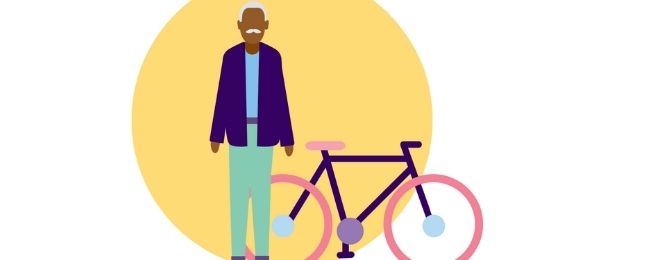E-bikes could play a vital role in getting older people more physically active, but many lack the information they need to get started.
Many older people assume bike riding is physically challenging and is beyond them once they reach to 50-70 age bracket.
They don’t realise that an e-bike could lower the exertion hurdle and give them the benefits of exercise while increasing their mobility.
The insights come from a new study—Best Foot Forward—from the Centre for Ageing that examines the barriers and enablers to active travel among 50-70-year-olds.
Older people who are already riding, and perhaps have been getting least 150 minutes of moderate intensity exercise or at least 75 minutes of vigorous intensity exercise by riding a bike are fully aware of the benefits of physical activity.
However, many people who have been sedentary throughout their life are finding it hard to break the ingrained habits.
Paradoxically one reason they give for not doing more active travel is that they are not fit enough to be more active!
The study interviewed many older people regarding their appetite for physical activity.
According to the report there is a perception that cycling requires a greater level of physical fitness and that there are more (and more significant) barriers to cycling than walking: "Hence, the overwhelming preference of most of our study participants was for walking over cycling.”
"There were people in this age cohort who did not feel that they were able to cycle, either because it had been a long time since they had done it, or (and this was the case mainly for women), they had never learned.
"Many of these people were reluctant to learn (or relearn), some because they thought they were too old – a clear example of harmful internalised ageism.
"Capability to engage in active travel encompasses the psychological as well as physical (that is, issues of knowing, understanding and confidence).
"All our study participants understood the importance of physical activity and appreciated the physical and mental health benefits of walking and cycling.
"E-bikes would appear to avert some of the most common barriers to cycling (namely, around fitness, distance and terrain). However, we found a lack of understanding about what e-bikes are, how they work and their potential benefits.
"And while on the one hand, there were people who didn’t understand that e-bikes could help with low levels of fitness, there were others for whom using an e-bike was ‘cheating’ or evidence of ‘laziness’.”
The report said the UK national government should continue to increase funding available for local areas through the Active Travel Fund to install safe, supportive infrastructure for both walking and cycling, i.e., well-maintained paths, adequate lighting, separation from traffic, distinct paths for walkers and cyclists and adequate places to lock bikes in town centres and other public spaces.
It should encourage the provision of ‘opportunity to try’ schemes to debunk common misconceptions about e-bikes; develop and fund e-bike purchase and loan schemes to address the prohibitive cost of e-bikes for many people.
Working across government, they should develop and pilot a national campaign targeting people of all ages that highlights how active travel can be part of your daily exercise and that it provides benefits for physical and mental health even if it’s low intensity.
Become our friend
Find out more about Bicycle Network and support us in making it easier for people to ride bikes.


